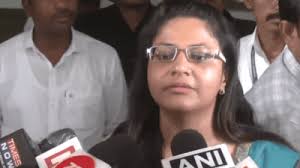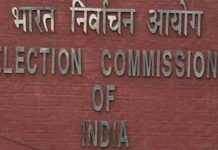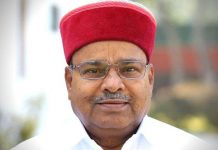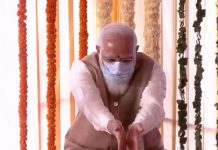Whatever be the truth, what stares one in the face is probationer Puja Khedkar’s attempt to shortchange the system. This puts a question mark on the entire gamut of the disability quota. by KUMKUM CHADHA

Hell broke loose when G20 Sherpa Amitabh Kant said that selection in the Union Public Service Commission, more popular as UPSC, should be on competence and integrity.
What Kant meant was that the coveted services should not be a kind of a “dole out” on grounds of physical or mental disability.
Demanding stringent action against misuse of disability quota, Kant voiced concern over several cases of fraud that were reported and said that reservations for physically and mentally handicapped individuals need “reconsideration”.
Also under fire is IAS officer Smita Sabharwal, who voiced similar concerns.
Unlike Kant, who said that he favoured scheduled caste, scheduled tribes and OBC reservations, Sabharwal questioned the necessity of disability quota on grounds that services like the IAS are demanding and require fieldwork. There is, she added, no room for people with disabilities in the services. She backed up her argument with a question: Does an airline hire a pilot with a disability? Or would someone trust a surgeon with a disability?
Quite clearly, Sabharwal explicitly said what Kant was hinting at.
In view of recent events that have occurred, both Kant and Sabharwal said what should have been said long ago.
As expected, activists were up in arms, pointing their guns at both Kant and Sabharwal. Some went as far as demanding a public apology from Sabharwal. Such was the anger against her that, if people had their way, they would have resorted to name calling.
As for Kant, activists charged him with a bias against the disabled: “Kant needs to be told that reservations are not charity given out of sympathy”.
Taking a moral high ground is one part. On that count, if one were to slam the policy of exclusion, there would be takers. As for political correctness, rather than exclusion, it should be seen as “inability to include” given the demands of the profession which call for mental agility and sound judgment. Therefore, in some sectors, even if competence scores over compassion, so be it.
As for ground reality, there are several cases of misuse. Many among those, who make it, have followed a dubious route.
Apart from the much-discussed case of Puja Khedkar, another one is under the scanner.
There are allegations against a former IAS officer who secured his position under the Locomotive Disability category, but there are videos showing him dancing and working out in a gym. Locomotive disability, it may be pointed out, is a condition restricting limb movement.
There are unverified reports too: a claim by an IAS officer about her taking a driving test despite being visually impaired; another who availed the benefit of a quota, was found to be “completely fit”; and yet another whose claim of being handicapped was belied by a display of photographs doing trekking and cycling.
Irrespective, medical opinion states that it is difficult to fake a disability certificate: “Difficult but not impossible,” said a doctor.
Difficult it sure is but what about the inherent corruption that exists or the rot within: a rot that has, in one sense, demonized the coveted service.
So, the issue is not about quotas alone: it is much more than that and one that is getting murkier by the minute.
In this context, controversy also surrounds the resignation of the UPSC Chairman Manoj Soni five years ahead of time.
Citing “personal reasons” for stepping down, Soni is said to be close to Prime Minister Narendra Modi.
His resignation amid the Khedkar controversy has stirred up a hornet’s nest. The process of vetting credentials of aspiring candidates is under the scanner and those at the helm are under scrutiny.
Soni’s hands may be clean or maybe not be, but the political slugfest over his resignation is on. The Congress is already talking about Soni being “nudged out” and the “autonomy and sanctity” of the institution being compromised.
The Opposition is on record questioning whether there is any connection between the various scandals and the resignation: “Are the people who have come on top posts of UPSC through political appointments responsible for this?” is what Congress’ Priyanka Gandhi sought to know. Meanwhile, her colleague, Jairam Ramesh, alleged that Soni was Modi’s “favourite academic from Gujarat”
The UPSC, it is well known, has filed a criminal case against Puja Khedkar, a probationary officer for faking her identity.
Khedkar is in the eye of a storm: a sense of entitlement being her undoing.
It all started with her allegedly exceeding her brief, using her personal Audi luxury car hooting a siren, demanding a private cabin and new furniture apart from other instances of high handedness that caught the attention of the administration which was swift to move in.
Whether it has something to do with her father being a politician or her mother a daredevil is anyone’s guess.
Puja’s father, Dilip Khedkar, recently contested the Lok Sabha elections; about her mother’s daring, there are visuals of her brandishing a gun while negotiating a land deal that made everyone sit up.
As for Puja’s disability, she had an OBC or Other Backward Classes certificate which she was not eligible for.
If reports are anything to go by, Puja Khedkar’s father’s net worth is Rs 40 crores which makes her part of the “creamy layer,” which is ineligible for the quota.
How is it that this fact was overlooked? Could it be complicity, because the excuse of oversight does not hold water. Also, what about the checks and balances for a claim by an aspirant? What about verification?
That apart, Puja Khedkar’s medical certificates, for mental health and visual impairment, were secured without going through the mandatory checks at AIIMS in Delhi which had summoned her six times but had drawn a blank. Khedkar is combating allegations of faking the certificates.
Therefore, the likes of Kant and Sabharwal, though “politically incorrect,” have hit the bulls-eye.
As for the system clean-up, it calls for a focus-shift from “cracking the services exam” to integrity, righteousness and ethics rather than scores. Once that happens then “scholars with a heart” would get in rather than those who flag high scores or a bunch of certificates.
There is a section which alleges a political twist to this distasteful episode, suggesting that Khedkar is a victim of vicious politics.
Whatever be the truth, what stares one in the face is a probationer’s attempt to shortchange the system. This puts a question mark on the entire gamut of the disability quota. It defames and discredits even those who are genuinely disabled and have used the quota provision justly and fairly.
Khedkar’s case has sparked off a much-needed debate: Where does the buck stop? What are the safeguards against misuse? Does a distinguished service like the IAS deserve to be tarnished?
More importantly, don’t recent events and the gross misuse call for a revaluation of the quota system and perhaps usher in the “inability to include” clause?
On the last, knives would be out but for the sake of the people, the institution and the services, it is an option which should be exercised: an option which may be a bitter pill but one that should and must be administered.













